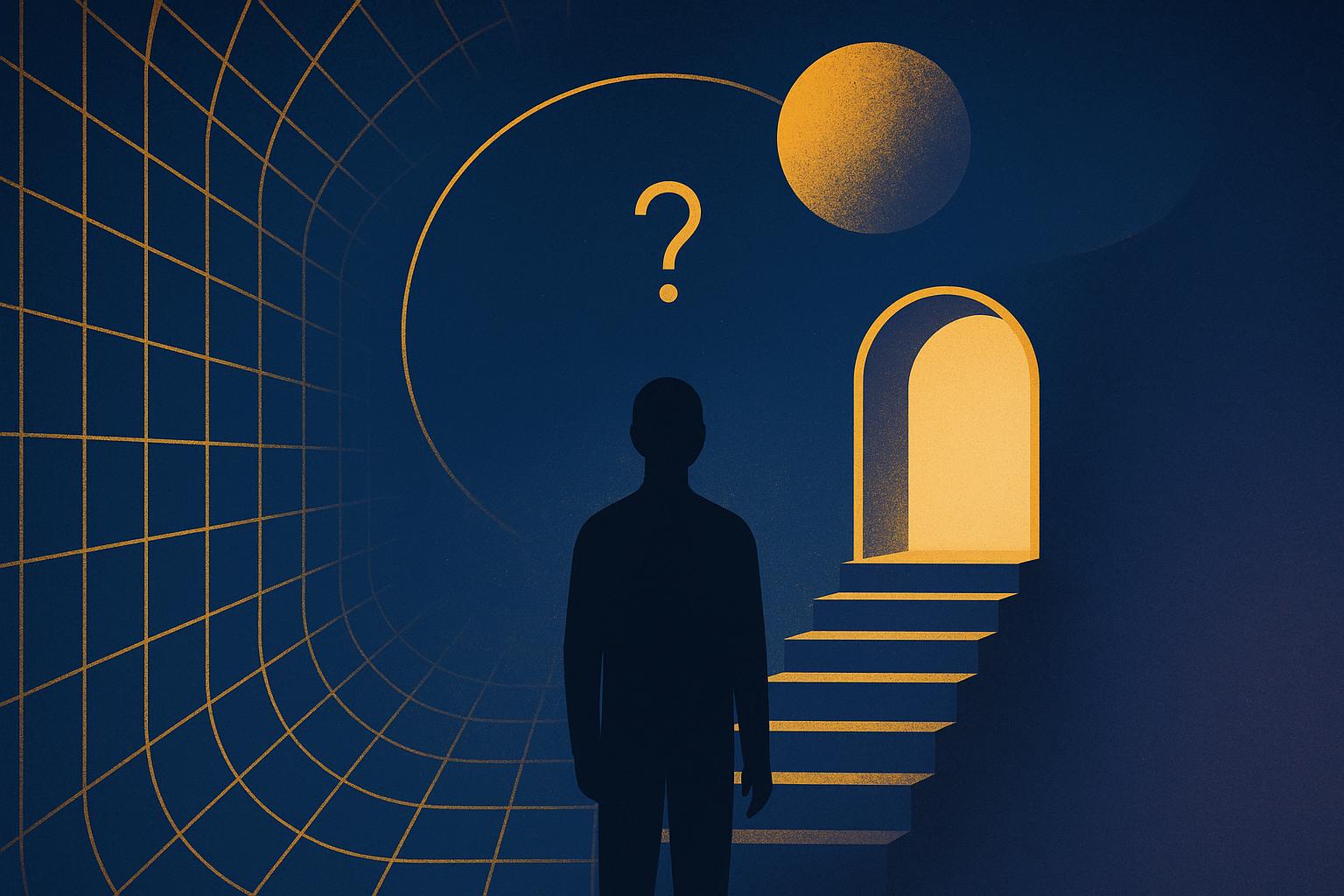Are We Living in a Simulation? Unveiling the Purpose of Our Reality
Introduction
The idea that our reality might be a simulation is not new, but it poses questions that are as compelling as they are profound. Imagine a universe where everything we see, feel, and experience is the product of a meticulously constructed simulation. This notion, while exhilarating for some and unnerving for others, prompts a myriad of questions. Are we mere characters in an elaborate simulation? What is the purpose of such an existence? And importantly, does this belief affect how we live our lives?
Let's delve deep into these questions, guided by philosophical insights and the perspective that believing in this concept might give our lives meaning and purpose.
The Simulation Hypothesis: A Brief Overview
The simulation hypothesis suggests that the world we perceive as reality might actually be an artificial simulation. This concept gained significant traction after philosopher Nick Bostrom proposed the idea that advanced civilizations might have the technology to simulate entire universes, and thus, it's possible—and perhaps even likely—that we are living in such a simulation.
But before reaching a conclusion, it's important to note that even if we might believe we are in a simulation, it doesn't necessarily harm our understanding or appreciation of life. As Johannes says, those who believe they live in a simulation prioritize the sanctity of life and the goodness of being present in their reality, values that remain beneficial regardless of whether reality is genuine or simulated.
What If This Is Base Reality?
One might question whether contemplating a simulated reality is even worthwhile, especially if it eventually turns out that our universe is indeed the base reality. According to Johannes, believing in a simulation might be wrong, but it does no harm. It lets us believe in something greater, providing each individual with the freedom to discover their own significance.
Purpose: The Core of Our Existence
According to Johannes, contemplating whether our reality is a simulation is worthwhile because it provides us with a sense of purpose. Understanding purpose is essential, not just in a hypothetical simulation, but in everyday life. Many struggle with finding a purpose: "Why am I here? What should I do?" By considering that we might have chosen this life in a higher reality, we're driven to seek meaning and fulfillment in every moment. Johannes notes that we can find meaning in every moment, a perspective that enhances life's richness, whether real or simulated.
Why Do We Need Purpose?
Purpose gives us motivation and direction in life. It allows us to navigate through life’s challenges and accomplishments with a vested interest. Even when we don't fully understand our life's purpose, simply believing that there is one can have positive effects on mental health and overall well-being.
Life as a Game
If reality is a simulation, we can equate it to a game. But what kind of game is it, and how should we play? Johannes emphasizes that we are only responsible for our actions. Although life might resemble a game, violence and harmful behavior hinder our journey towards fulfilling our purpose. Understanding that life is a game encourages us to make choices that nurture growth and understanding, moving us closer to our intended purpose.
Finding Meaning Through Gameplay
Whether within this reality or in the microcosms of virtual gaming, we should question the meanings we find and strive to seek those same meanings in real life or simulated existence. This involves personal growth, connection with others, and appreciating the experience as a whole.
Challenges and Overcoming Adversity
Living in a simulated reality—or simply believing we do—does not exempt us from life's hardships. Johannes explains that if we've chosen to enter this reality for a reason, even experiencing adversity remains crucial for our growth. Life's challenges can illuminate aspects of existence and deepen our understanding of ourselves.
Embracing Life's Challenges
Every experience, good or bad, adds to the tapestry of our lives. Acknowledging and embracing adversity enables personal development and resilience. Ultimately, this fulfills the objective of experiencing different facets of existence, an essential component of the journey in both genuine and simulated realities.
The Duality of Existence
In asking whether reality is a simulation, Johannes proposes a dual lens through which to view existence. On one hand, it changes nothing, since the best way to live in a simulation is as if each choice were irrevocable. On the other hand, it changes everything by proposing that following this life, other experiences await.
Living Authentically
Whether or not reality is a simulation, the authenticity of our experiences and our connections with others remain genuinely influential. The recognition that consciousness exists in this moment—and acting accordingly—facilitates purposeful living.
Conclusion
Regardless of whether we are living in a simulation, the consideration of such a possibility has profound implications for how we choose to live our lives. Aligning with Johannes' perspective, the hypothesis encourages a purposeful approach to existence, embracing challenges, valuing connections, and finding meaning in each moment.
Ultimately, contemplating life as a simulation provides not only a philosophical exercise but also an invitation to invest in the present and strive for fulfillment, bridging the gap between reality and belief.
Live this moment fully, whatever your reality might be.
Are we in a simulation? If you choose to think deeply enough, the answer just might be, "Does it matter, as long as life feels real?"
